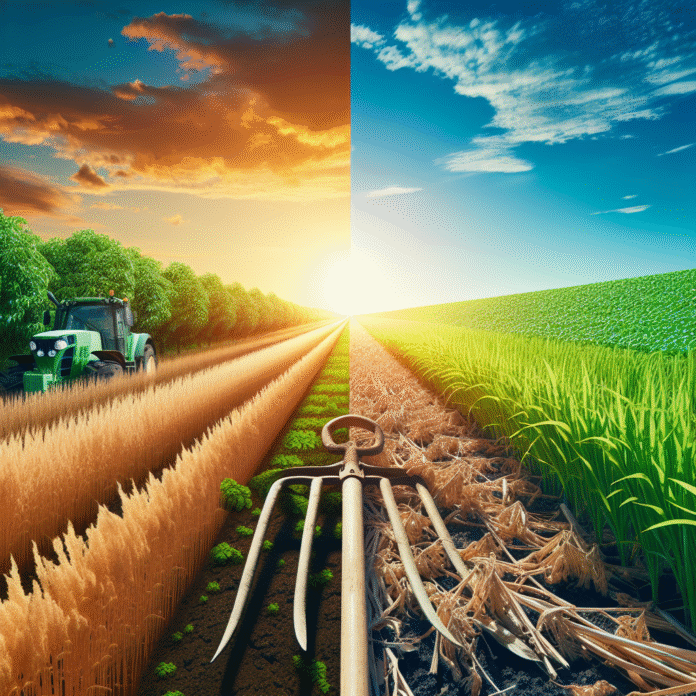Crops Facing Challenges from Climate Change
“`html
Crops in Peril as Climate Change Impacts Agriculture
By Dare Akogun
The effects of climate change are becoming increasingly evident in agricultural sectors worldwide, posing significant threats to crop production. Farmers face a daunting array of challenges, including unpredictable weather patterns, shifting growing seasons, and the emergence of new pests and diseases. These factors can lead to reduced yields and compromised food security, creating a ripple effect that impacts economies, livelihoods, and nutrition globally.
Unpredictable Weather Patterns
One of the most alarming consequences of climate change is the alteration of weather patterns. Increased frequency and intensity of extreme weather events, such as droughts and floods, disrupt traditional farming practices. For instance, crops like maize and wheat, which are highly sensitive to temperature fluctuations, are increasingly at risk. As these crops struggle to adapt, farmers may face diminished harvests, forcing them to rely on costly irrigation systems or even abandon their fields altogether.
Shifting Growing Seasons
Climate change is also causing a shift in growing seasons across various regions. Warmer temperatures can lead to earlier planting dates, while unpredictable frosts can threaten young crops. In regions that depend on specific seasonal cues for planting and harvesting, these changes can wreak havoc on established agricultural calendars. Farmers may find themselves scrambling to adjust, often with limited resources and knowledge about new best practices.
Emerging Pests and Diseases
As climates warm, pests and diseases that were once confined to specific areas are spreading into new territories, posing additional threats to crops. Warmer conditions can accelerate the life cycles of pests, leading to more frequent infestations. Meanwhile, pathogens that cause plant diseases are also adapting to changing climates, making them harder to control. Farmers may need to invest in new pest management strategies and crop varieties that can withstand these emerging threats.
Economic Implications
The economic ramifications of these agricultural challenges are profound. Crop failures can lead to increased food prices, which disproportionately affect low-income communities. Additionally, as farmers struggle to adapt, they may incur significant costs related to purchasing new seeds, fertilizers, or pest control measures. This financial strain can lead to a cycle of debt and economic instability for farming families.
Strategies for Adaptation
To combat these challenges, it is crucial for farmers, policymakers, and researchers to collaborate on effective adaptation strategies. These may include investing in climate-resilient crop varieties, improving irrigation infrastructure, and adopting sustainable farming practices that enhance soil health. Education and training programs can also empower farmers with the knowledge needed to navigate the changing landscape of agriculture.
Conclusion
As climate change continues to pose significant threats to global agriculture, proactive measures are essential to safeguard food production and ensure the resilience of farming communities. By embracing innovative solutions and fostering collaboration, we can work towards a sustainable future for our crops and the people who depend on them.
“`


